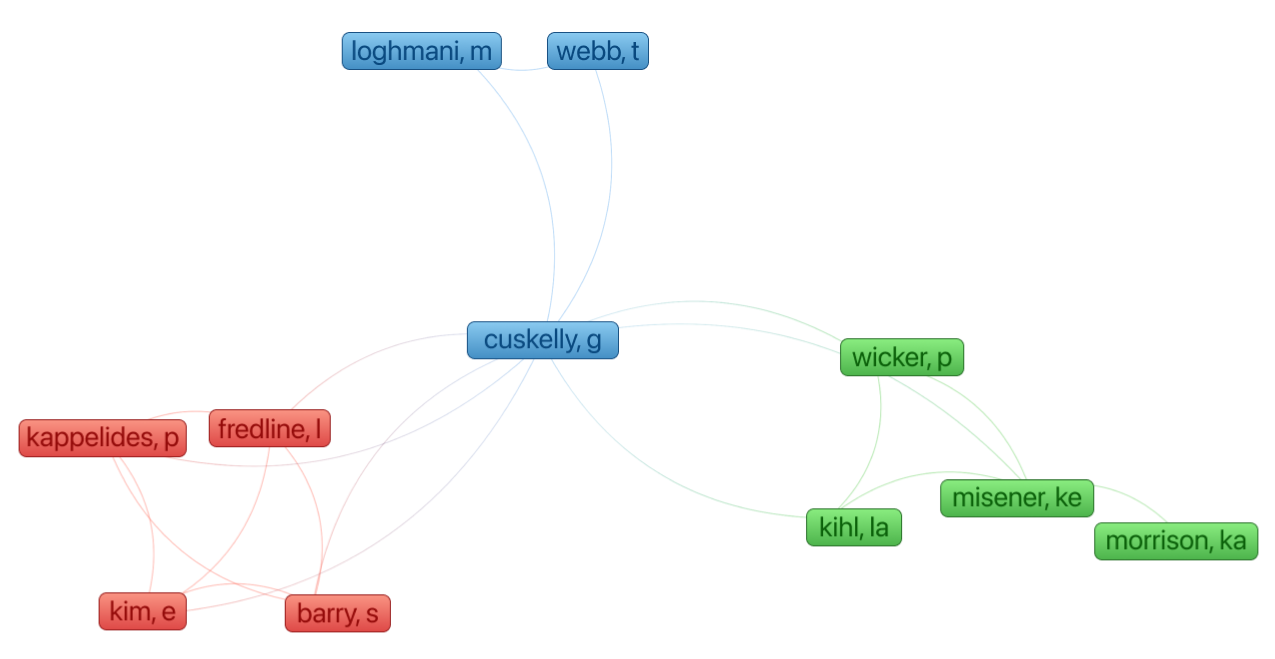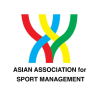





































Editorial Board

Sport Management Associations
About SMD
Sport Management Digest (SMD) is the official publication of the Russian International Olympic University (RIOU) produced in partnership with the World Association for Sport Management (WASM) from September 2021. The publisher's address is Moscow, Luzhnetskaya embankment, 8, building 1. The SMD is edited by a team of international scholars, it is published bi-annually in spring and autumn each year. Readers can also automatically translate individual sections of the SMD in three languages including Chinese, Russian, and Spanish.
Registration number Эл № ФС77-80699 dated March, 29 2021.
The SMD is a new and unique publication, which provides a synthesis of all studies in the top ten sport management journals including
- Sport Management Review
- Journal of Sport Management
- European Sport Management Quarterly
- Journal of Global Sport Management
- International Journal of Sport Policy and Politics
- International Journal of Sports Marketing and Sponsorship
- International Journal of Sport Finance
- Communication and Sport
- International Journal of Sport Communications
- Journal of Sports Economics
The principle aim of the SMD is to enhance the understanding and knowledge development of academics and practitioners working in the field. The SMD is edited by a team of international scholars, it is published bi-annually in spring and autumn each year and is completely free for anyone to use. Readers can also automatically translate individual sections of the SMD in three languages including Chinese, Russian, and Spanish.

Dear friends,
It is with pleasure and pride that I present to you our new publishing project implemented in collaboration with our long-time partner, the World Association for Sport Management. Sport Management Digest will meet the needs of those who want to keep informed of the current state and future prospects of the global sports industry. The Digest will be your reliable guide in navigating the overwhelming sea of publications on this topic. It will also help you save the most precious resource of modern life - time, as you browse the most valuable publications selected by leading experts in the field.
I wish you pleasant and informative reading!
Lev Belousov
Rector of the Russian International Olympic University

On behalf of the World Association for Sport Management (WASM), it is my distinct pleasure to welcome the inaugural issue of the Sport Management Digest that is a joint WASM-Russian International Olympic University (RIOU) venture. Sincere thanks to both the RIOU for their efforts in producing the Sport Management Digest, as well as to General Editor Vassil Girginov and his outstanding Editorial Board composed of colleagues around the globe. This first issue of the Sport Management Digest, presented in eight sections, includes a review of 130 articles from 10 sport management journals. The Sport Management Digest will be produced twice a year and will soon have the capacity to be translated into one’s native language. We hope you enjoy this unique product that is being offered free to our global sport management community!
Dr. Karen Danylchuk
President, World Association for Sport Management (WASM)
The Sport Management Digest: Background, Aims, Scope, Approach and a Bibliometric Insights
Background to the Sport Management Digest
As we enter the decade of the 2020s sport organisations are viewed as open systems, which comprise an inter-independent array of changing technologies, policies, personalities, groups and skills. They are not fixed and isolated entities insulated from their surroundings but need to expand and evolve by adapting to changes. Just as contingency theories argue that there are no universal principles that can be used to effectively guide an organisation into a productive future, sport organisations today respond to their commercial and cultural world dependent on the specific circumstances they face. In some cases, a rational, conventional, and disciplined approach may be needed to accommodate some change in market conditions, but in other situations a more intuitive and novel strategy might be more appropriate. In order to meet these challenges sport managers have developed greater strategic skills, delivered timely and varied packages of services to increasingly discerning customers, and continually monitored the changing needs of the public. These changing demands on sport managers, in part, contributed to the development of the discipline of sport management. Costa (2005) suggests sport management defined itself as a discipline in the mid-1980s “as signalled by the founding of the North American Society for Sport Management (NASSM) in 1985” (p. 117), and a key element of the growth of the discipline has been the publication of scholarly works (Chelladurai, 2005). As Pitts (2001) suggests: “a field of study cannot exist without a body of knowledge and literature” (p. 2) that has been formed through the process of research.
Sport management’s rapid growth from a modest beginning in the 1960s to a widely recognized and legitimate field of scientific inquiry is now supported by 24-dedicated peer-reviewed journals and some 100 sport-related journals. Taylor & Francis, the world leading academic publisher, boasts a portfolio of some 250 sport management books and five journals specifically on sport/leisure management and 30 journals in related areas. The first dedicated sport management journal, Journal of Sport Management, was founded in 1987, when it published 13 papers that year. In combination, the 10 leading sport management journals will publish over 300 papers in 2021. Currently sport management is taught both at undergraduate and graduate levels in thousands of universities across Africa, Asia, Australia, New Zealand, Europe, North and South America, Middle East and Middle Eastern countries. Sport management research forms an integral part of the academic output that has been subjected to evaluation by governments in different countries. Sport management has become institutionalised within academic associations covering all parts of the world, (e.g., The North American Society for Sport Management (NASSM), the Sport Management Association of Australia and New Zealand (SMAANZ), Asian Sport Management Association (ASMA), African Association for Sport Management (AASM), Latin American Association for Sport Management (ALGEDE) and the World Association for Sport Management (WASM). Sport management is also an applied field and currently there are some 4 million registered sport managers in Europe alone, with the United Kingdom boasting the largest number of 1,132,500 managers followed by Italy with 542,429 managers (European Union, 2016).
Aims and Scope
Sport Management Digest (SMD) is the official publication of the Russian International Olympic University (RIOU) produced in partnership with the World Association for Sport Management (WASM). SMD is a new and unique type of publication which provides a digestible summary of information that is methodically classified and arranged in portions to promote comprehension of key topics and their application in practice.
The principle aim of the SMD is to enhance the understanding and knowledge development of academics and practitioners working in the field. It provides one-stop shop where users can find a high-level digest of key topics published in the top ten sport management journals. SMD is published bi-annually in spring and autumn each year, and is free for anyone to use.
The growth of sport management knowledge and information has made keeping up with theoretical and methodological advances in the field challenging for experienced and novice researchers alike. It also poses distinct challenges to practitioners who use research in their daily work. Therefore, there is a need for a high-level publication that digests the main developments in the field in an easily accessible format and understandable language. The SMD builds on the earlier efforts of the Journal of Sport Management in the 1990s to provide a digest of some new publications in the field, but does so in a much more comprehensive and systematic way.
Currently, there are over 100 academic journals publishing sport management-related research and practical insights. Of these, some 30 journals specialise in different aspects of sport management, and there are also mainstream business, economics, management, marketing, organisational studies and sociology journals that tend to publish sport-related papers. While the list of journals may be long, they tend to vary in scope and quality, which makes any meaningful summary of their content virtually impossible. Therefore, the SMD focuses on the main 10 established sport management journals which are supported by different academic continental associations and WASM. Table 1 shows the selected journals all of which charge a subscription fee or provide paid access to selected articles.
Table 1. Background information about the ten sport management journals included in the Sport Management Digest
Approach to the Sport Management Digest
The content of the SMD is organised around eight thematic sections, plus a general introduction in the form of a bibliometric analysis, which in combination, provide comprehensive summaries of the articles published in the ten sport management journals. To allow keeping track of those publications in the current year, subject to review are only articles published in regular journal issues and not online first articles, which are covered in the subsequent issue of the SMD. In addition, readers will find an annotated bibliography of selected articles reviewed in each section as determined by the editors.
A bird view of the sport management field in the first half of 2021
The ten sport management journals subject to review in the SMD will publish in 2021 a total of 47 issues with some 300 articles. This section provides a bibliometric analysis of the articles published in the first half of the year, from January to June 2021. These articles were written by 306 authors affiliated with 129 institutions and Figure 1 shows the number of published outputs from the top ten institutions. Contributing authors came from over 50 countries from all continents.
Figure 1. Top ten institutions by number of published articles (January - June 2021)
Table 2. Number of articles and authors’ country of selected sport management journals (January-June 2021)
| Journal | Articles (No) | Countries (No) |
|---|---|---|
| European Sport Management Quarterly | 42 (9 UK; 7 USA) | 23 |
| Sport Management Review | 25 (15 USA; 6 UK) | 10 |
| Journal of Sport Management | 28 (24 USA and Canada) | 7 |
| International Journal of Sport Communications | 11 (3 Australia; 3 USA) | 7 |
A closer look at the metrics of individual journals suggests that the field is still heavily dominated by ideas and authors originating from North America and Western Europe. Since sport management is a deeply rooted contextual activity, there is a danger of uncritically promoting ethnocentricity within the field. Table 2 shows a sample of journals with the number of published articles and authors’ country.
Figure 2. Network analysis of ten sport management journals (January – June 2021)

Figure 2 depicts a network analysis in terms of co-citation links between different sport management journals. The analysis was conducted using the VOSviewer software (version 1.6.8), which computes the network using RIS files generated by data bases such as Scopus and Web of Science. As a general rule, the closer two journals are located to each other, the stronger their relatedness, and the strongest co-citation links between journals are also represented by blue, red and green lines. Naturally, the picture is limited due to the low number of articles included in the analysis. What emerges from the analysis though is a greater relatedness between authors published in the same journal as opposed to stronger relatedness between sport management journals (the distance between blue, orange and green boxes is not very close).
The research published in the ten journals has been funded by a number of public, charitable and commercial agencies, which speaks to the impact the work of sport management scholars is having on sport and society in general. Twenty-five studies were funded by grants of which six from research councils, five by universities, 10 from governmental agencies and charities and four from major governing bodies of sport including the International Olympic Committee, UEFA, UK Sport and Sasakawa Foundation.
The democratisation of knowledge has become an important feature of academic research and sport management research in particular, which is exemplified by the Open Access (OA) approach to publication. Access to the content of all ten journals covered by the SMD is on a subscription or pay by article basis. For example, the annual subscription charges for the European Sport Management Quarterly and Sport Management Review are $1,408 and $687 for institutions, and $309 and $146 for individual respectively, while the average price for downloading/purchasing an article is around $25. This means that individuals and institutions who do not subscribe to some of the journals (or don’t have the means to pay for an article) will find it virtually impossible to access their content. The OA approach is contingent on institutions or individuals paying an article processing charge to the journal publisher, which then makes the paper freely available to anyone to access. It is encouraging to note that some 17% of the publications in the first half of 2021 were made under the Open Access regime, but ideally it would be beneficial for the entire sport management community this percentage to be much higher.
As we alluded to in the introduction, the commercial forces that embraced sport in the second half of the 20th century led sport managers to radically review and change sport’s management structures and practices. The changes were supported by a clutch of management theories and principles signalling that adaptability was the key to survival and sustainability. Thus, flexible structures and open systems have become central to sport’s commercial viability and social relevance. In tandem, we have seen sport management evolve into a discipline with its own body of knowledge, numerous professional associations, a vibrant employment sector and an area of research that is published in discipline specific high impact academic journals. Sport Management Digest is the latest edition to this group of journals and aims to provide the sport management community with a broader and deeper understanding of the high-quality research that is being undertaken within the discipline.














